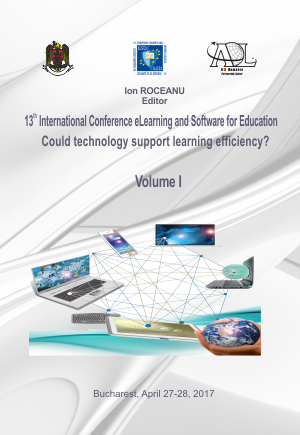E-LEARNING TOOLS FOR ENGINEERING STUDENTS: ONLINE DICTIONARIES
E-LEARNING TOOLS FOR ENGINEERING STUDENTS: ONLINE DICTIONARIES
Author(s): Cristina Mihaela Nistor, Doina ComanetchiSubject(s): Social Sciences, Education
Published by: Carol I National Defence University Publishing House
Keywords: e-learning tools; online dictionaries; autonomous learning.
Summary/Abstract: Dictionaries have always been an important component of learning a foreign language, assisting students in learning new vocabulary, in understanding the meaning or translating into/from their mother tongue. However, even if their role is generally acknowledged, dictionaries do not have an equally prominent place in the English classroom today. They are not integrated into the language activities and little or no time is set aside for dictionary-dedicated activities. This is the result of a number of reasons: time constraints, teachers’ assumption that students know how to use a dictionary and therefore do this routinely, or other teaching/learning priorities. This situation invites several questions: firstly, how effectively do our students use this tool, secondly, how often do they really use it, and, last, but not least, do they know how to select the best online dictionaries from among the multitude of offers at their disposal? Also, there is the question of how much they rely on it for research in their specialist field. Moreover, considering their proficiency in using all things electronic, we ask ourselves to what extent they resort to online dictionaries as opposed to printed ones. The answers to these questions are indicative of (at least) two interrelated aspects: learners’ individual study skills, and their degree of autonomous learning. Consequently, teachers/researchers may try to find the answers to some pertinent questions: are students competent dictionary users outside the classroom, is it part of their personal program of language study, are they equipped for the challenges of lifelong learning in this area of study? These are questions that this paper is trying to answer starting from a survey carried out among engineering students in the University “Politehnica” of Bucharest.
Journal: Conference proceedings of »eLearning and Software for Education« (eLSE)
- Issue Year: 13/2017
- Issue No: 01
- Page Range: 479-484
- Page Count: 6
- Language: English

